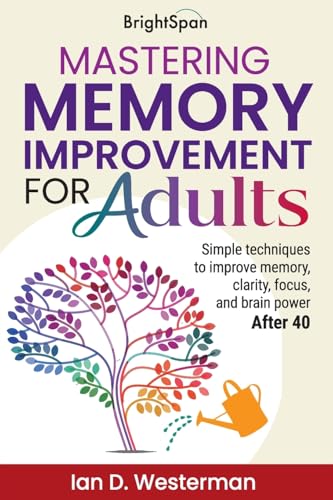As our brains age, we’re less likely to think as quickly or remember things as well as we used to. Research is now showing how the brain changes and adapts with age. You can use what we’ve learned and follow a few simple tips to help remember things and avoid scams.
Dr. Denise C. Park, director of the Roybal Center for Healthy Minds at the University of Illinois, explains that the knowledge we gain from life experience can sometimes compensate for other changes in our brains as we age. Older professionals can often be better at their jobs than younger ones. “Your memory may be less efficient,” Park says, “but your knowledge about how to do it may be better.”
Researchers can design tests that expose problems in the aging mind by creating tasks in which older adults can’t use their experience. These tests reflect real-life situations like getting upsetting medical news or having a crafty scam artist pressure you for an answer.
One key to dealing with situations like these, Park says, is not to make rash decisions. Ask for further information and more time to consider. Discuss it with friends or relatives.
Perhaps the most common trouble people face as they age is remembering things. Park says it’s important to acknowledge that your memory is fallible. “For medicines, driving directions or other things with specific details, don’t rely on your memory,” she says. “That’s good advice for everybody, but especially for older adults.” If you need to remember something important, write it down on a pad or use an electronic device like a personal digital assistant (PDA) that lets you store notes and reminders.
Another way to remember things is through routines. Take your medicine with a snack or a particular meal, for example. Always keep your keys and wallet in the same place.
You can also use your imagination. If you imagine doing something beforehand, Park says, you’re much more likely to do it. So, for example, imagine taking your medicine in as much detail as you can, paying attention to where, when and how.
Practice can help, too. Rehearse talking to a salesperson. Visit somewhere new in advance.
Keeping your brain active with activities that require mental effort, such as reading, may help keep your mind sharp. Staying physically active may help, too.
Alzheimer’s or Aging? The Signs You Need To Know
Is your forgetfulness an early sign of Alzheimer’s disease, or just normal aging? Treatments for Alzheimer’s work best in the early stages, so do you need to see a doctor now? Here are the signs you need to look out for.
How do you know if that forgetfulness you’ve had is an early sign of Alzheimer’s disease, or just normal aging?
You may forget the occasional name or sometimes have trouble thinking of the right word to use. Maybe you walk into another room and wonder what you were looking for. Is it Alzheimer’s, aging, or just plain being distracted, doing one thing while you’re thinking of another?
There are signs to look out for, signs that tell you it’s time to get to the specialist and get checked out. Treatments for Alzheimer’s disease work best in the early stages, so it’s vitally important to get an early diagnosis. An early diagnosis and early treatment can give you more years of normal functioning, and save you and your family tens or even hundreds of thousands of dollars.
The Warning Signs
Memory Loss: We all forget things like appointments, names, and phone numbers occasionally, and that’s normal. Forgetting freshly learned information more often can be a warning sign, though.
Communication Problems: Having trouble finding the right word is not unusual, but the Alzheimer’s sufferer often forgets simple words and may use unusual words or strange descriptions. A camera may become that box that makes pictures.
Problems with everyday tasks: A person with Alzheimer’s disease can start having trouble doing jobs or hobbies that they’ve had many years of experience with. For example, they may be halfway through their favorite recipe and forget how to finish it, though they’ve done it many times before.
Misplacing Things: This isn’t the normal losing the car keys, but more like putting things in unusual places, such as the ice-cream in the oven, or clothes in the dishwasher.
Disorientation: A person with Alzheimer’s disease can get lost in their own street or stay sitting at the bus station because they can’t remember where they were going. They may not remember how to get home.
Impaired Judgment: Wearing a thick jacket on a blazing hot day or a swimsuit in the middle of winter could be a sign of dementia. Having poor judgment with money can be a symptom too, such as spending big amounts of money with telemarketers or buying products that aren’t needed.
Trouble with Complex Tasks: Having trouble with tasks that require abstract thinking like balancing a check book or playing a favorite game can be difficult for the Alzheimer’s sufferer.
Mood Swings, and Personality Changes: Mood changes for no apparent reason can be another symptom. The sufferer could be happy and cheerful one minute, and then suddenly become furious over something that is quite trivial, or that they have imagined. They can become clingy with a family member, or suspicious of the neighbors.
Loss of Initiative: We can all get tired of housework or our business activities sometimes. But someone suffering from Alzheimer’s disease can become quite passive, watching television for hours, not wanting to do their normal activities, or spending more time sleeping.
Many more people are worried that they may have Alzheimer’s disease than actually get the disease. However, if you are suffering from these symptoms, see a specialist.

